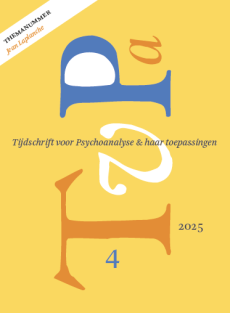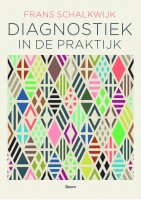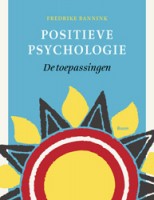Johanna en de poezenwinkel
Summary
Johanna and the pussycat-store
This paper demonstrates some specifics or the resolution of oedipal conflicts in adoption. The reactivation of these difficulties in the adoptive parents and the dramatic effect of this on the emotional development of the adopted child are discussed in the context of a child psychotherapeutic case. The subject of adoption is also present in Sophocles’ tragedy Oedipus the King, in which Oedipus is given two sets of parents. The importance of the psychic integration of conflicted parental imagos (real in the case of adoption, but universally present in the child’s mind) is demonstrated from the current psychoanalytic literature.
Key words:
adoption, oedipal conflicts
Literatuur
- Bartram, P. (2003). Some Oedipal problems in work with adopted children and their parents. Journal of Child Psychotherapy, 29, 21-36.
- Bettelheim, B. (1955). Truants from life. Glencoe Ill.: Free Press
- Canham, H. (2003). The relevance of the Oedipus myth to fostered and adopted children. Journal of Child Psychotherapy, 29, 5-192.
- Gammill, J. (1985). Problématique du traitement psychothérapeutique des enfants adoptés. In J. Gammill, A partir de Melanie Klein (p. 63-97). Lyon, Cesura.
- Miller, L. (2004). The Oedipus complex as observed in work with couples and their children. Journal of Child Psychotherapy, 30, 39-52.
- Quinodoz, D. (1996). An adopted analysand’s transference of a ‘hole-object’. International Journal of Psychoanalysis, 77, 323-336.
- Quinodoz, D. (1999). The Oedipus complex revisited: Oedipus abandoned, Oedipus adopted. International Journal of Psychoanalysis, 80, 15-30.
- Steiner, R. (1985). Turning a Blind Eye: The Cover up for Oedipus. International Review of Psycho-Analy sis 12, 161-172.
 © 2009-2026 Uitgeverij Boom Amsterdam
© 2009-2026 Uitgeverij Boom Amsterdam
ISSN 1382-516x
De artikelen uit de (online)tijdschriften van Uitgeverij Boom zijn auteursrechtelijk beschermd. U kunt er natuurlijk uit citeren (voorzien van een bronvermelding) maar voor reproductie in welke vorm dan ook moet toestemming aan de uitgever worden gevraagd:
Behoudens de in of krachtens de Auteurswet van 1912 gestelde uitzonderingen mag niets uit deze uitgave worden verveelvoudigd, opgeslagen in een geautomatiseerd gegevensbestand, of openbaar gemaakt, in enige vorm of op enige wijze, hetzij elektronisch, mechanisch door fotokopieën, opnamen of enig andere manier, zonder voorafgaande schriftelijke toestemming van de uitgever.
Voor zover het maken van kopieën uit deze uitgave is toegestaan op grond van artikelen 16h t/m 16m Auteurswet 1912 jo. Besluit van 27 november 2002, Stb 575, dient men de daarvoor wettelijk verschuldigde vergoeding te voldoen aan de Stichting Reprorecht te Hoofddorp (postbus 3060, 2130 KB, www.reprorecht.nl) of contact op te nemen met de uitgever voor het treffen van een rechtstreekse regeling in de zin van art. 16l, vijfde lid, Auteurswet 1912.
Voor het overnemen van gedeelte(n) uit deze uitgave in bloemlezingen, readers en andere compilatiewerken (artikel 16, Auteurswet 1912) kan men zich wenden tot de Stichting PRO (Stichting Publicatie- en Reproductierechten, postbus 3060, 2130 KB Hoofddorp, www.cedar.nl/pro).
No part of this book may be reproduced in any way whatsoever without the written permission of the publisher.
Nieuwsbrief Boom Psychologie
Meld u nu aan en ontvang maandelijks de Boom Psychologie nieuwsbrief met aantrekkelijke aanbiedingen en de nieuwe uitgaven.
Aanmelden


